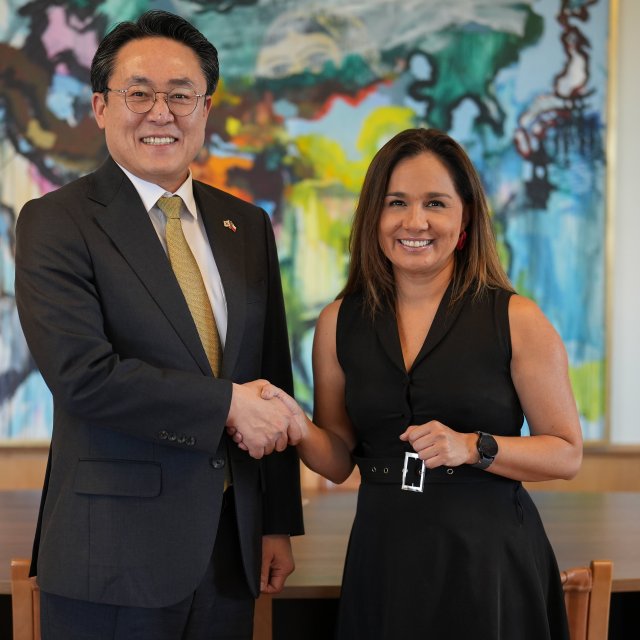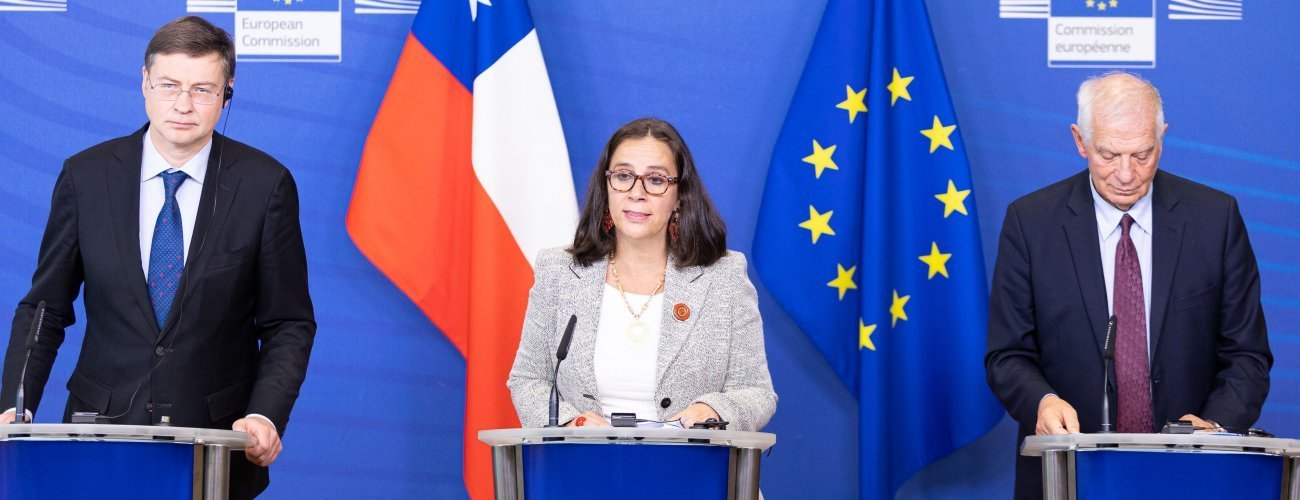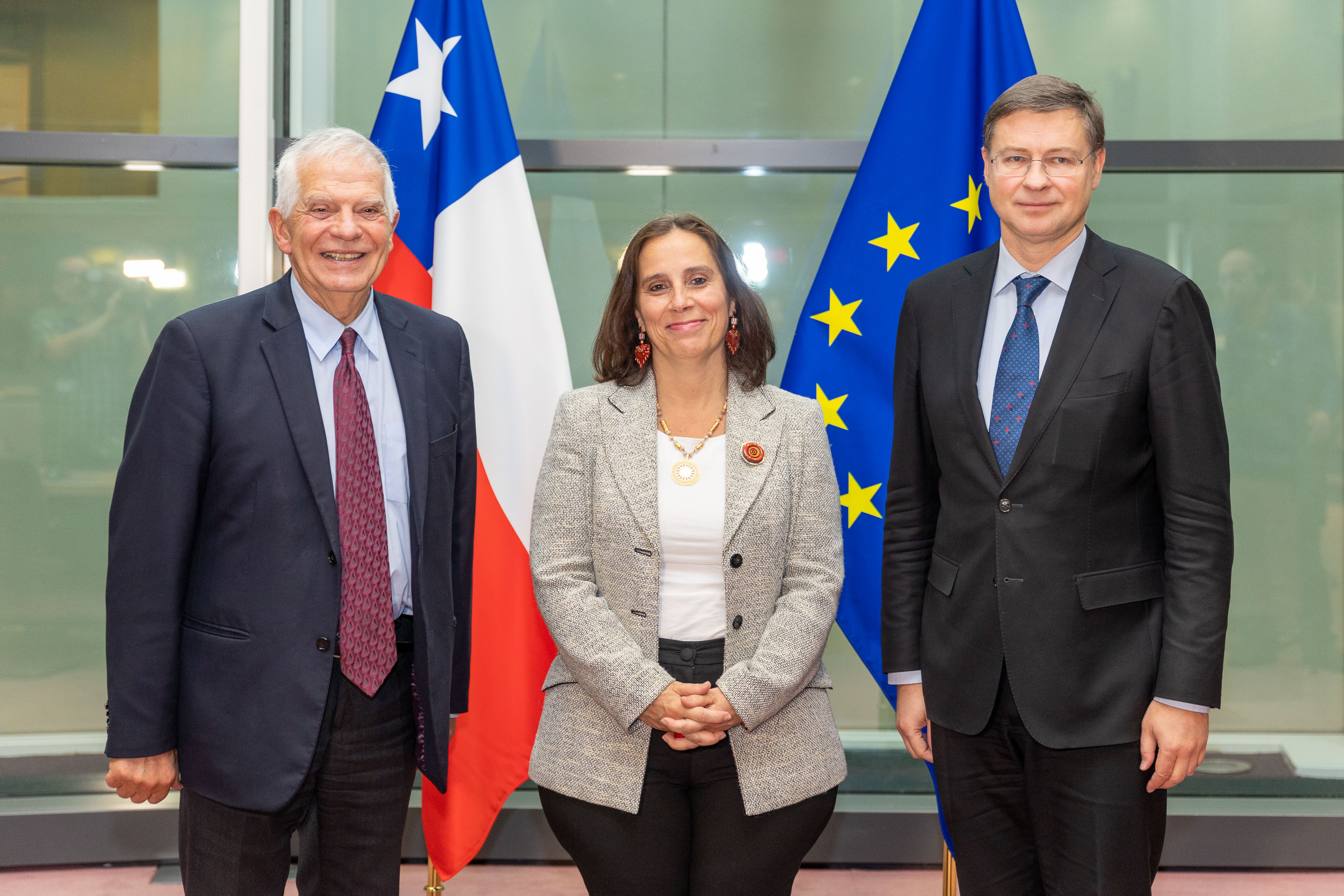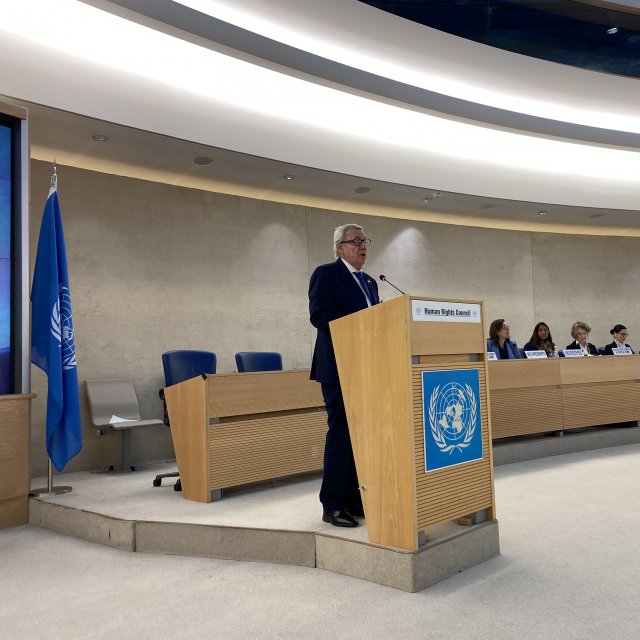 Thursday, February 27th 2025
Undersecretary meets with the Minister of Oceans and Fisheries of the Republic of Korea
Thursday, February 27th 2025
Undersecretary meets with the Minister of Oceans and Fisheries of the Republic of Korea
Chile and the European Union bring the modernisation of the Association Agreement to a political close

The Minister of Foreign Affairs, Antonia Urrejola, and the Undersecretary for International Economic Relations, José Miguel Ahumada, together with the High Representative of the Union for Foreign Affairs and Security Policy and Vice-President of the European Commission, Josep Borrell, and the Executive Vice-President of the European Commission for the Euro and Social Dialogue and Commissioner for Trade, Valdis Dombrovskis, announced today that they reached an agreement in principle for the new Advanced Framework Agreement between Chile and the European Union.
Thus, today marks the political closure of the modernisation process of the Association Agreement - signed in November 2002 and entered into effect in 2003 - which began in 2015 during the government of President Michelle Bachelet, in which the terms of reference were negotiated and agreed, and whose negotiations were officially launched in 2017.

"This agreement covers a number of areas that were not incorporated or considered in a more general way, strengthening partnerships between Chile and the European Union in areas that reflect common values and principles, such as the promotion of democracy, human rights and fundamental freedoms, rule of law and good governance, sustainable development and particularly gender equality and the empowerment of women and girls," said the Minister.
The Chancellor added that the Advanced Framework Agreement recognises the urgency of addressing climate change and the protection of the environment and our natural resources, also including issues such as social cohesion, energy transition, the oceans and their protection, innovation, digitalisation and cooperation for regional and territorial sustainable development. "This opens up broad prospects for future work with the European Union and its Member States, through actions that are also in line with two fundamental axes of our foreign policy, what we have called the Turquoise Foreign Policy in relation to climate change and biodiversity, and the Feminist Foreign Policy, two fundamental axes of our foreign policy," he concluded.
For his part, Undersecretary José Miguel Ahumada said that this agreement "protects the country's strategic and regulatory autonomy, and consolidates an agenda for environmental protection, gender equality and deepens the economic-trade relationship between Chile and the European Union. Upon entry into force, it will replace the 15 existing investment protection agreements and establish a permanent investment court that will substantially improve the investor-state dispute settlement mechanism".
Related articles
 Thursday, February 27th 2025
Undersecretary meets with the Minister of Oceans and Fisheries of the Republic of Korea
Thursday, February 27th 2025
Undersecretary meets with the Minister of Oceans and Fisheries of the Republic of Korea
 Monday, February 24th 2025
Minister van Klaveren reaffirms Chile's commitment to human rights and gender equality
Monday, February 24th 2025
Minister van Klaveren reaffirms Chile's commitment to human rights and gender equality









